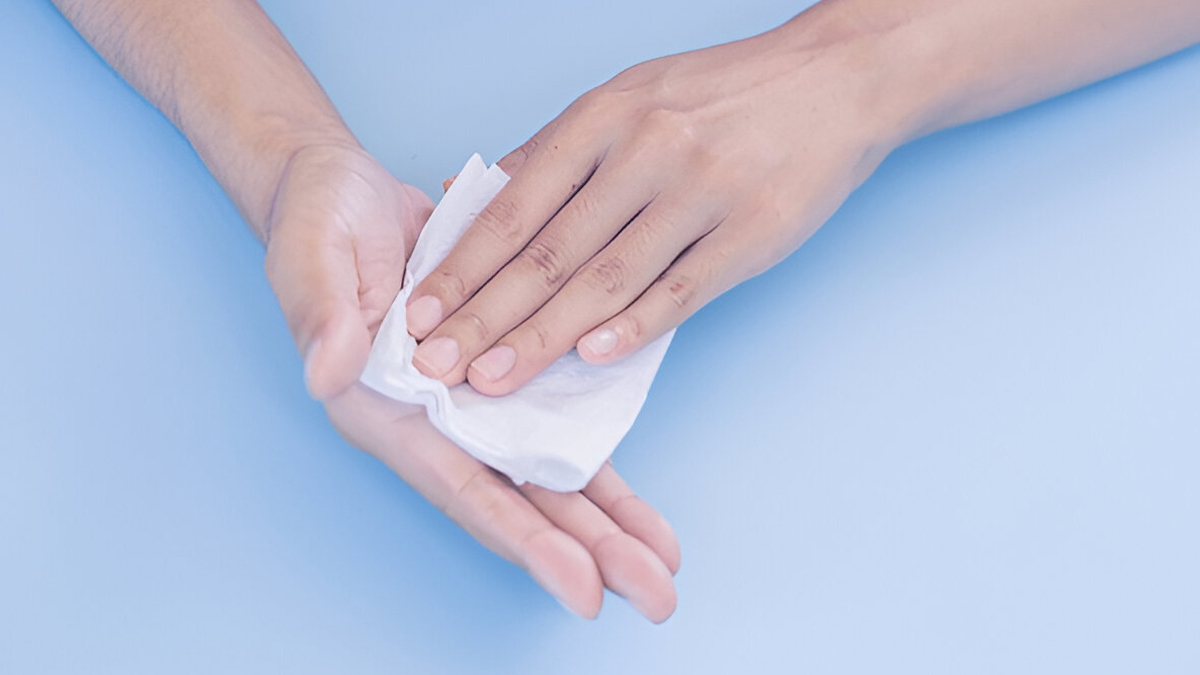
Having sweaty palms is normal, especially on a hot summer day or during a humid monsoon. However, when the reasons go beyond weather and are linked to underlying health conditions, it should be taken more seriously.
Table of Content:-
Experts believe sweaty hands can be a sign of hyperthyroidism, a condition where the thyroid gland produces excessive thyroid hormones. It is a condition most common in women. While it does not have any cure, it can be managed with proper treatment and lifestyle choices. To understand the link between sweaty hands and hyperthyroidism, the OnlyMyHealth team spoke toDr Mahesh D M, Consultant – Endocrinology, Aster CMI Hospital, Bengaluru.
Also Read: Mood Swings, Anxiety, Restlessness? Your Thyroid Might Be To Blame
What Is Hyperthyroidism?

Hyperthyroidism is a condition in which the thyroid gland produces excessive amounts of thyroid hormones, speeding up the body’s metabolism. This overactivity can lead to symptoms such as rapid heartbeat, unexplained weight loss, increased appetite, anxiety, sweating, and irritability.
According to a study published in JAMA Network, hyperthyroidism affects 2.5% of adults worldwide and is associated with osteoporosis, heart disease, and increased mortality.
Common causes include Graves’ disease (an autoimmune disorder), thyroid nodules, or excessive iodine intake.
Diagnosis is typically made through blood tests that measure thyroid hormone levels, and treatment options may involve medication, radioactive iodine therapy, or surgery to regulate hormone production.
Can Hyperthyroidism Cause Sweaty Hands?

According to InformedHealth.org, people who have an overactive thyroid, or hyperthyroidism, often sweat a lot and feel uncomfortable when they are warm. Their skin is often warm and moist to the touch, and they may have thinning hair.
"Hyperthyroidism raises thyroid hormone levels, which increases the body’s metabolic rate and heat production (thermogenesis). It also heightens sensitivity to sympathetic (adrenergic) signalling. To dissipate excess heat, the body activates eccrine sweat glands. The palms and soles have a high density of eccrine glands innervated by sympathetic cholinergic fibres, so palmar sweating is common, although sweating is often generalised," Dr Mahesh explains.
Is It Anxiety Or Thyroid Issues?
According to Dr Mahesh, anxiety-related sweating often follows stress or emotional triggers and may ease with relaxation. Hyperthyroid-related sweating tends to occur even at rest or during sleep and is accompanied by heat intolerance.
Associated signs:
- Hyperthyroidism usually includes resting tachycardia, unintentional weight loss, tremor, increased bowel movements, menstrual irregularities, and sleep disturbance.
- Anxiety may include palpitations and tremors but without sustained weight loss or heat intolerance.
- Objective checks: Measure resting heart rate and weight trends. Definitive confirmation requires blood tests with low TSH and high free T4 and/or free T3.
Also Read: Why Do Some Sweat More And Others Less? Expert clarifies
Other Symptoms Of Hyperthyroidism

Common features that can accompany hyperthyroidism include:
- Weight loss despite normal or increased appetite
- Heat intolerance and generalised sweating
- Resting tachycardia, palpitations, or atrial fibrillation (especially in older adults)
- Fine tremor, nervousness/anxiety, insomnia, fatigue
- Proximal muscle weakness
- Increased bowel movements or diarrhoea
- Menstrual irregularities and possible decreased fertility
- Goitre (thyroid enlargement)
- Hair thinning and warm, moist skin
- Eye findings such as lid retraction, lid lag, and irritation; proptosis (bulging eyes)
How To Diagnose And Treat Hyperthyroidism?
Dr Mahesh advises testing if palm sweating is persistent or unprovoked and accompanied by features such as:
- Heat intolerance, resting tachycardia, palpitations
- Unintentional weight loss, tremor, insomnia
- Increased bowel movements, menstrual irregularities, anxiety, or proximal muscle weakness
- Goitre or new atrial fibrillation
The first recommended test is Thyroid-Stimulating Hormone (TSH). If TSH is low, then free T4 and/or free T3 should be measured. Other possible causes of excessive sweating should also be considered, including primary hyperhidrosis, infections/fever, hypoglycaemia, menopause, or medications (SSRIs/SNRIs, bupropion, stimulants, or thyroid hormone).
Restoring normal thyroid hormone levels reduces heat production and sympathetic overactivity, which in turn lowers sweating. Approaches include:
- Antithyroid drugs
- Radioactive iodine therapy
- Surgery
- Beta-blockers (e.g., propranolol) can provide rapid relief of tremor, palpitations, and sweating.
Conclusion
Occasional sweaty palms are usually harmless, but if the sweating is constant or paired with symptoms like weight loss, a racing heartbeat, or heat intolerance, it’s worth a closer look. Hyperthyroidism can affect your comfort, confidence, and overall health if left untreated. If you notice persistent sweating without an obvious cause, don’t brush it off; schedule a thyroid checkup.
Also watch this video
How we keep this article up to date:
We work with experts and keep a close eye on the latest in health and wellness. Whenever there is a new research or helpful information, we update our articles with accurate and useful advice.
Current Version
Sep 16, 2025 10:47 IST
Modified By : Tenzin ChodonSep 16, 2025 10:46 IST
Published By : Tenzin Chodon